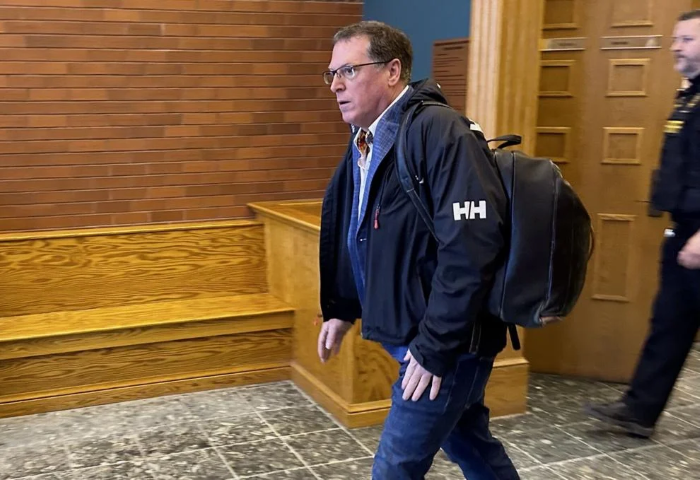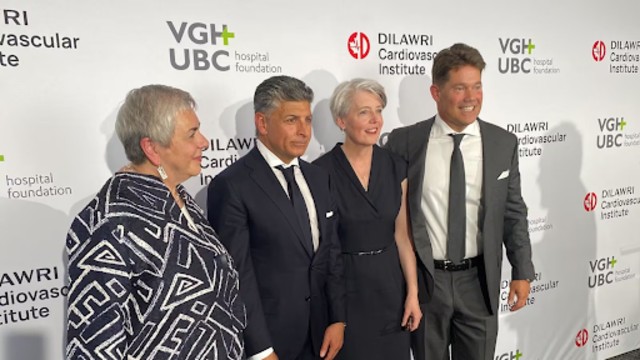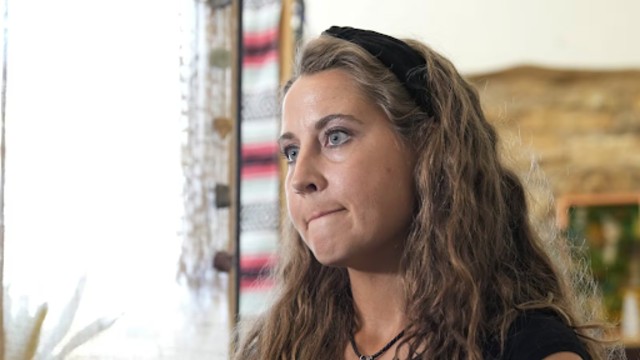
A Supreme Court judge in central Newfoundland granted dental surgeon Dr. Louis Bourget, shown in Gander, N.L. on Tuesday, April 9, 2024, an absolute discharge after he pleaded guilty to assault for allowing a correctional officer to extract teeth from a sedated inmate. THE CANADIAN PRESS/Sarah Smellie
A dental surgeon in Newfoundland and Labrador received an absolute discharge from a Supreme Court judge for allowing a correctional officer to extract four teeth from a sedated inmate. Justice Melanie Del Rizzo, speaking via videoconference in Gander, emphasized that while Dr. Louis Bourget's actions breached trust and authority, criminal conviction and custody would not benefit him or the public.
Del Rizzo acknowledged Bourget's grave error in allowing the extraction, which constituted an assault on the inmate, Blair Harris. Despite this, she deemed it unjust to burden Bourget with a criminal record given the severe consequences it would entail.
The incident occurred in October 2020 when Harris was taken to Bourget's office by two correctional officers. Bourget permitted one officer, Ron McDonald, to perform the extractions while the other filmed, under the guise of a "teaching moment."
Bourget, aged 62, pleaded guilty to assault last year, with prosecutors seeking a three-month sentence and the defense advocating for an absolute discharge.
Del Rizzo noted Bourget's acknowledgment of overstepping boundaries, as stated in his court submission. Bourget admitted to loosening the skin around Harris's teeth to facilitate extraction, asserting no risk to the inmate during the procedure.
However, Harris's victim impact statement revealed profound psychological effects, including anxiety, paranoia, and fear of dental visits. Del Rizzo underscored Harris's vulnerability during the procedure, sedated and under the control of correctional officers.
Approximately 70 letters of support for Bourget, including from colleagues and former patients, were submitted to the court. Bourget's extensive qualifications, esteemed career, and philanthropic endeavors, such as offering free dental care in Africa and Brazil, were highlighted.
Del Rizzo concurred with the defense's argument that a criminal conviction would terminate Bourget's career and acknowledged the impact of the COVID-19 pandemic on his judgment. Bourget faced disciplinary action from dental boards in Nova Scotia and Newfoundland and Labrador, incurring significant financial and emotional costs.
In light of Bourget's minimal risk of reoffending and the absence of a criminal record, Del Rizzo deemed an absolute discharge in his best interest and aligned with the public interest.
Following the ruling, Bourget declined to comment on the case to reporters.















